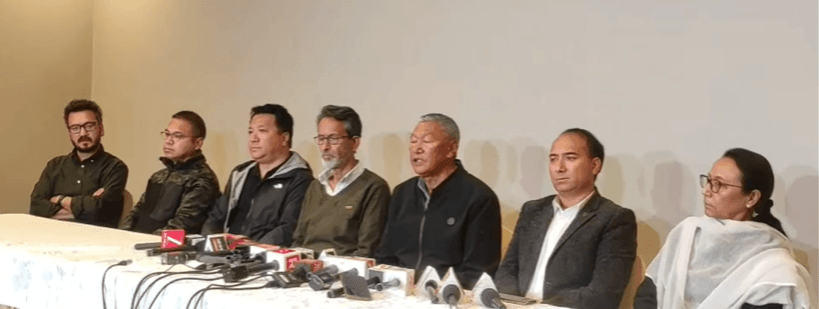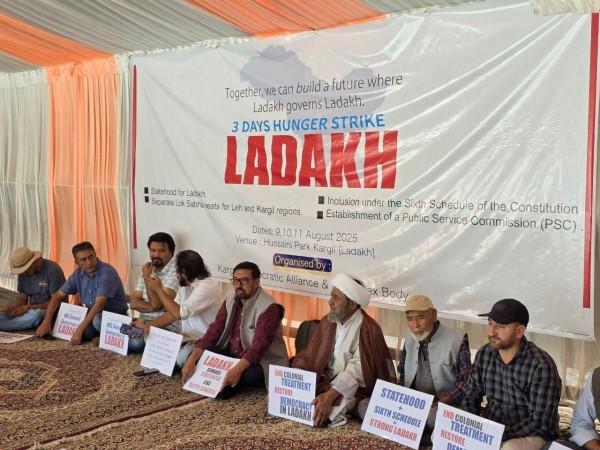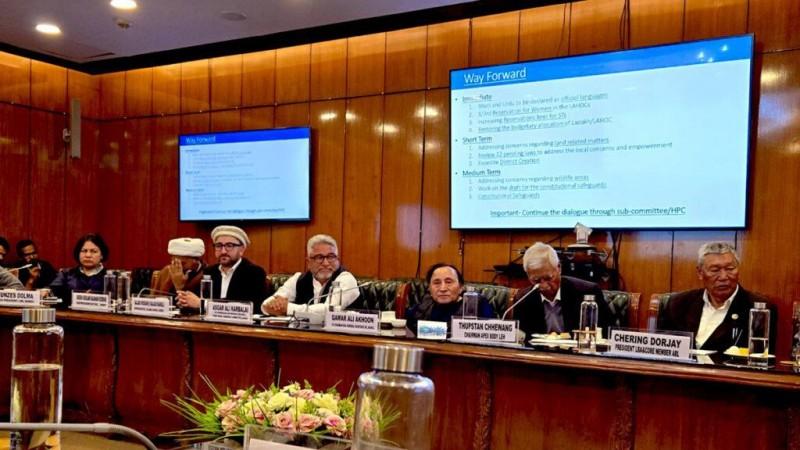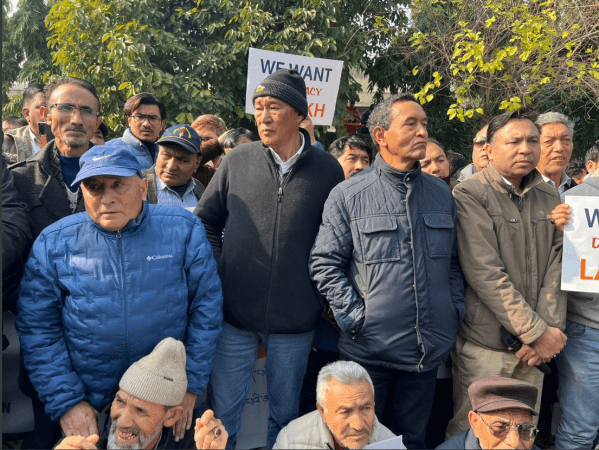
A week after the agitating groups of Ladakh submitted their 29-page charter of demands to the Union Government, a major controversy has erupted as former president of the Ladakh Buddhist Association (LBA), Dr. Tondup Tsewang Chospa, raised serious concerns over public exclusion in the drafting process.
Dr. Chospa said the document was prepared unilaterally by the agitating groups, without consulting or incorporating the wishes and aspirations of various sections of society.
"Recently, the Apex Body, Leh, submitted a draft of demands pertaining to Ladakh to the MHA. While appreciating the concerns of the Apex Body for Ladakh's future, some serious issues need to be highlighted," the prominent Buddhist leader said.
He alleged that the draft was put together by only a few individuals, with no wider public consultation.
"Notably, the views of important sections of the Buddhist community—especially from Kargil, Zanskar, Aryan Valley, Changthang and other regions—were sidelined and not considered," he said, adding that the entire exercise was "non-transparent and lacked genuine public participation."
He further pointed out that the draft was made public only after it had already been submitted to the MHA, "thereby defeating the very purpose of making it public."

According to Dr. Chospa, intolerance toward differing opinions within the Apex Body, Leh, is also growing.
"Rather than encouraging a wider exchange of ideas from across the public, the leadership seems to have taken an obstinate stance, projecting a one-sided view," he said.
"It has come to public notice that people—particularly women—expressing differing views on the demands are reportedly subjected to intimidation, pressure tactics and harassment."
He added that such behaviour runs contrary to "core Buddhist traditions of openness, tolerance, respect for dialogue, and a willingness to understand diverse viewpoints."

Some sections oppose the demand for statehood
Dr. Chospa said a growing number of people are questioning the demand for statehood for Ladakh.
"There is a growing viewpoint against the demand for statehood, as many feel it could be detrimental to inter-regional and communal harmony in Ladakh," he said. "It could end up favouring communities or regions with larger populations."
He added that the feasibility of statehood as a viable model for resource generation and long-term socio-economic development is also being widely debated, especially after the draft became public.
"The draft has failed to adequately justify the demand for statehood," he said.
Therefore, he asserted, the demand for statehood should be pursued only after wide-ranging public consultations and should not be projected as a "consensus" view of the Ladakhi people at this stage.
Urging both the UT Administration of Ladakh and the Government of India to take note of the emerging public dissent, Dr. Chospa said it was essential to ensure that the dialogue process remains free, fair, and truly representative.
"Crucial views expressed in the interest of Ladakh's future must not be underrepresented or ignored," he said.
"We are hopeful that our leadership will work towards the genuine welfare of Ladakh and its people," he added.

Agitating groups submitted 29-page charter to Centre on November 16
As reported earlier, Ladakh's agitating groups submitted a 29-page charter of demands seeking full statehood, inclusion under the Sixth Schedule, and constitutional protections under Part XXI and Article 371 of the Constitution of India.
Following the MHA's directive to present a detailed written proposal during the sub-committee meeting on October 22, 2025, the Leh Apex Body (LAB) and the Kargil Democratic Alliance (KDA) jointly submitted a comprehensive draft framework to the Union Government for further deliberations.
In their submission, the groups reiterated their demand for Sixth Schedule status for Ladakh, along with a strong case for full statehood and constitutional safeguards under Part XXI and Article 371.

















